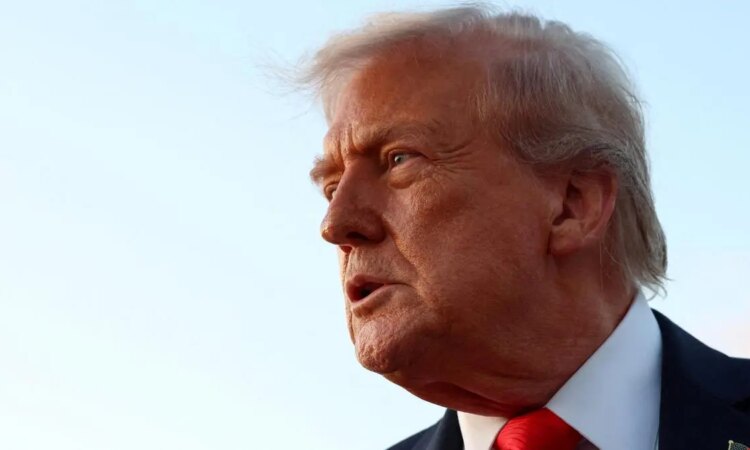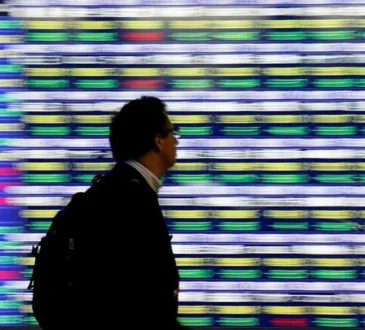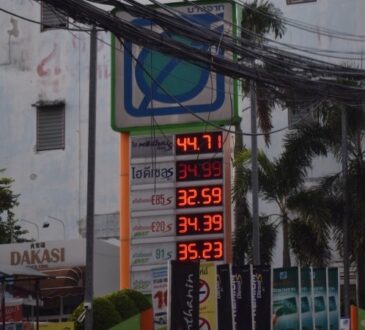
A high-stakes US-China summit next week is putting investors on edge, with major implications looming for sectors from rare earths and defense to agricultural products.
US President Donald Trump is slated to meet a host of Asian leaders during his three-nation tour of the region beginning Sunday, with a Thursday sit-down with Chinese President Xi Jinping the focus of attention. His visit coincides with the Association of Southeast Asian Nations summit in Malaysia and that of the Asia-Pacific Economic Cooperation in South Korea. He’ll also have a stopover in Tokyo.
A successful Trump-Xi meeting, as predicted by the US president, will inject calm into global markets and likely revive appetite for risk assets from Asian shares to regional currencies closely tied to China’s economy. Failure to find common ground, however, may reignite volatility and spark a sharp selloff.
“The Trump-Xi meeting could serve as a stabilizing milestone,” said Xingchen Yu, emerging markets strategist at UBS Global Wealth Management. “This environment supports a strategy of using market dips as buying opportunities, especially in segments with strong structural and cyclical growth drivers such as China tech, India, Brazil, and broader EM equities.”
These are the sectors money managers are closely watching ahead of the events:
Rare earths
Trump has listed rare earths, fentanyl, soybeans and Taiwan as the US’s top issues with China ahead of his Asia trip and a new round of bilateral trade negotiations scheduled in Kuala Lumpur from October 24 to 27.
The US president will seek to sign critical mineral deals with trading partners during the trip, focusing on agreements that create reliable supply chains and secure more investments in the US, according to senior US officials. The officials didn’t offer specifics on what the deals the president is seeking may entail.
Frictions over the critical mineral have flared up again after Beijing outlined fresh export restrictions earlier this month for rare earths that power advanced weaponry, cutting-edge computer chips and high-tech cars. China controls about 70 per cent of the commodity’s global supply. The tensions have fueled sharp stock rallies this year among miners like China’s JL Mag Rare-Earth Co and Australia’s Lynas Rare Earths Ltd.
Chinese authorities have since tried to dial down tensions, reassuring foreign businesses this week that its new export controls are not intended to hinder normal trade. Japan has warned that China’s export controls on rare earths could be used to slam the brakes on its carmaking industry.
“A potential de-escalation on the rare earth policy will impact Japan, Taiwan and South Korea,” said Jason Lui, head of Asia-Pacific equity and derivatives strategy at BNP Paribas SA. “It’s a common threat to the three markets.”
Defence
Arguably the thorniest issue in China-US relations, the fate of Taiwan will again loom large at the upcoming meeting. Any new rhetoric from either side will be keenly watched by investors in the region’s defence equipment makers and beyond.
“Should President Trump choose to play the Taiwan card, it could trigger turbulence in Taiwanese equities and a broader risk-off sentiment across global equities,” said Gerald Gan, deputy chief investment officer at Reed Capital Partners. “Regional defence and military-related themes, especially in Korea, China, and Japan could see upside on renewed security concerns and regional destabilisation.”
Shares of major Korean defense contractor Hanwha Aerospace Co have rallied over 200 per cent this year, while those of Japan’s Mitsubishi Heavy Industries Ltd have doubled.
‘Transshipment’
As the Asean summit unfolds, investors in Southeast Asia will look for updates to the US’s proposed 40 per cent additional tariff on goods deemed “transshipped” through the region — a measure aimed at curbing Chinese products from bypassing existing duties.
The most exposed to such a risk is Vietnam, an export powerhouse that boasted the world’s third-biggest surplus with the US last year. The country has been seeking to diversify its export markets as it continues to hash out the terms of a trade deal with Washington.
Vietnamese stocks are up about 33 per cent this year, ranking among the top performers in Asia, thanks to optimism about the country’s capital market reforms and hopes for a market upgrade.
“If there’s more clarity on the 40 per cent transshipment tariffs, investor confidence in the ongoing bull market in Vietnam can get stronger,” said Ruchir Desai, a fund manager at Asia Frontier Capital in Hong Kong. “That would support Vietnam’s supply chain relocation story further.”
Soybeans
Also in the spotlight is a politically sensitive commodity: soybeans. Global benchmark prices in Chicago have climbed about 5 per cent in the past two weeks, as investors bet that Washington will urge Beijing to resume purchases of the oilseed from America. The rally has inspired gains in wheat and corn prices as well.
For the first time since at least the 1990s, China hasn’t bought any US soybeans at the start of the export season, a sign Beijing is once again using agriculture as leverage in the trade war. The Chinese have turned to Brazil for record shipments.
“The US has put such a priority on soybeans that to come away empty handed would be an embarrassment which they don’t want, and for China it is an easy concession to give in order to get better terms with other more important products/sectors.” said Richard Buttenshaw, executive director of grains and oilseed at Marex.
Currencies
The Xi-Trump summit and the outcome of fresh US-China trade negotiations will likely reset the tone in foreign exchange markets as well. Any sign of thawing ties is expected to brighten investor mood toward the yuan and Asian currencies such as South Korea’s won and the Taiwan dollar, given the Chinese currency’s role as an anchor of the region.
“US-China tensions may still keep RMB-proxy currencies such as KRW and TWD under pressure, but there are signs that tensions may de-escalate,” said Christopher Wong, currency strategist at Oversea-Chinese Banking Corp. “It’s plausible to say the proxies can recover if there is some extended truce or favorable outcome.”
As for the yuan itself, Bank of America strategists expect trade tensions to be resolved constructively and believe that China is signaling tacit support for appreciation by setting the dollar/yuan reference rate below the psychologically important 7.10 level.
Beijing can afford to let the yuan strengthen to 6.8 per dollar by the end of the third quarter next year, they added.
More stories like this are available on bloomberg.com
More Like This
Published on October 25, 2025



